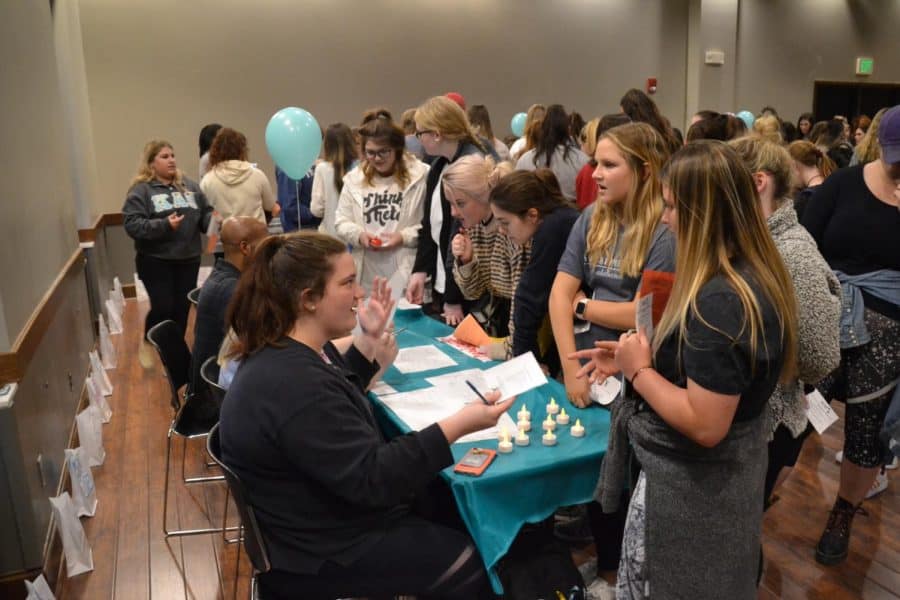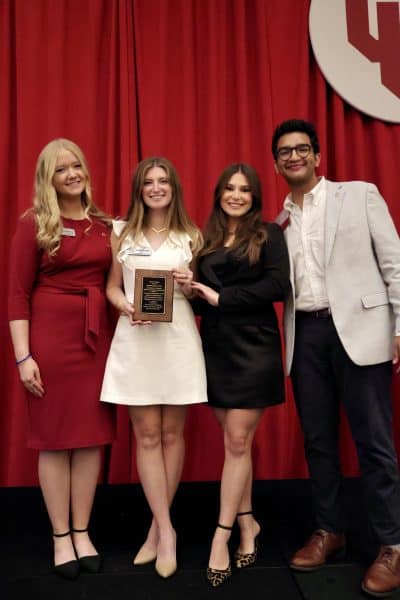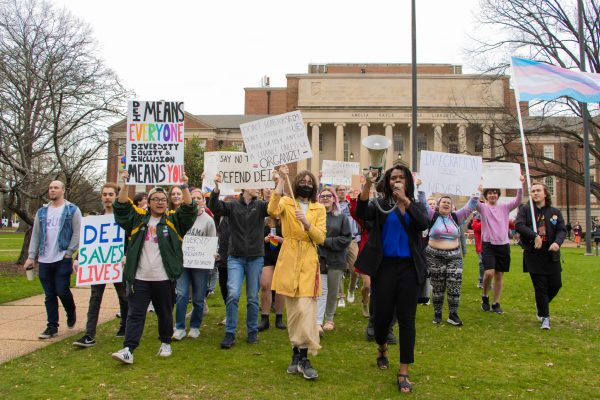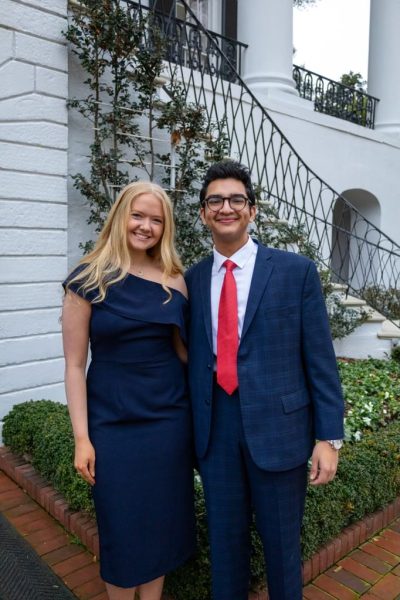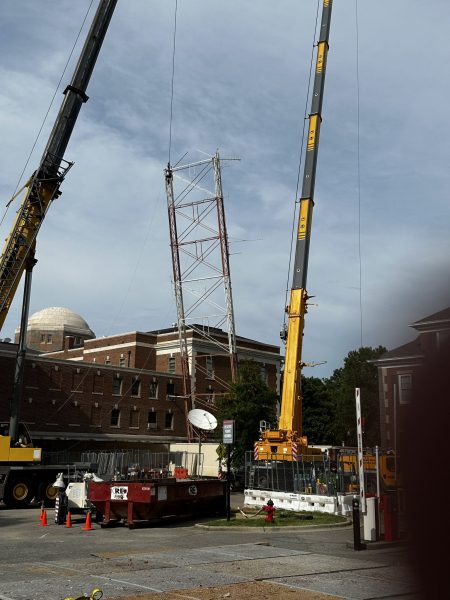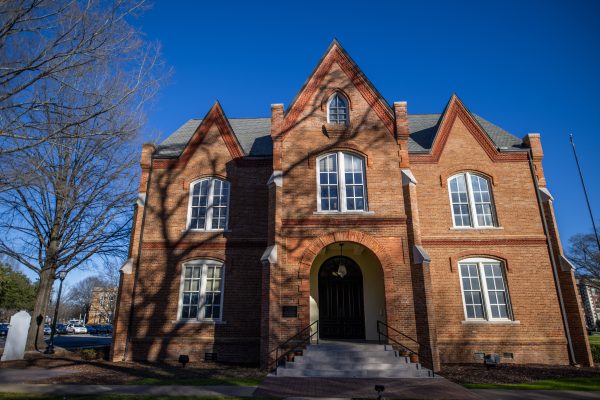Suicide prevention awareness event breaks stigma
April 4, 2019
Claire Dimitri’s sister faced a suicide crisis. Fortunately, she overcame it and is now pursuing her life in the best way as she sets the example of how a suicide crisis can be defeated.
Dimitri, a junior majoring in psychology, is the service director of Kappa Alpha Theta sorority. She is motivated to bring awareness to suicide prevention and demonstrates how the issue hits close to home.
“I just want the campus and population to just learn more about suicide awareness and how to prevent it,” Dimitri said. “I think it’s really hard to send people and just tell someone if they’re struggling, ‘Oh, just like, go to the Counseling Center.’ Like it shouldn’t just be on the Counseling Center, it should be on us as a campus, and like, it’s everyone’s responsibility to look out for their friends, their family if they go here, their sorority sisters, fraternity brothers. We’re in, like, such close quarters that we should know and be able to recognize those kinds of signs to help out the people we love.”
The atmosphere in the Ferguson Student Center Ballroom on March 31 was heavy, as students walked into the dim room filled with inspirational messages on PowerPoints and white paper bags scattered around.
The suicide prevention awareness event going on gave participants the opportunity to learn more about suicide and identify the warning signs to look for within themselves and their peers.
Dimitri said through the suicide prevention awareness event, they were able to raise about $600 through sponsorships before the event. All of the money raised was donated to the American Foundation for Suicide Prevention. She said the mission of the event was to help educate everyone on campus about suicide prevention awareness and bring attention to the signs that may be underlooked.
“So basically, this event is just to educate the students, faculty, our community about suicide awareness and prevention,” Dimitri said. “It’s something that definitely needs to be talked about. Mental health is so important, especially for kids our age, and so we’re just kind of doing this event to give everyone education on knowing the signs [and] knowing how to handle mental health.”
According to 2016 data from the Centers for Disease Control and Prevention, suicide is the second leading cause of death among college students. Students who attended the event took a pre-test and post-test to grasp a better understanding of suicide in general and ways to acknowledge a crisis in a timely manner. Students moved from table to table as they received information regarding self-care, the UA Counseling Center, mental health and more.
About 80-90% of students who do take suicidal action were not receiving guidance from their college counseling center, according to the American Foundation for Suicide Prevention. At the suicide prevention awareness event, resources for students were emphasized to show the importance of getting help, and representatives from the Counseling Center expressed how they genuinely care for students’ well-being.
The Counseling Center offers two different programs that provide information about how to intervene and recognize the signs when someone is contemplating suicide. Question, Persuade, Refer (QPR) is an in-person program that trains participants in the steps to recognize and respond to someone in a suicide crisis. On the other hand, Ask, Listen, Refer is an online suicide prevention training course that teaches participants on how to prevent suicide campuswide.
Sarah Tarnakow, the suicide prevention coordinator and staff therapist for the UA Counseling Center, said she believes everyone at the University should go through at least one of these programs to gain a better understanding on suicide prevention.
“You never know what people are going through,” Tarnakow said. “You never know what might be going on behind closed doors or what people are thinking.”
The mission of the Counseling Center is to enhance students’ lives and experiences during their time here at the University. Tarnakow said the primary goal is to provide support to students, whether it’s academically or personally.
“I believe that no one is without hope,” Tarnakow said. “I believe that in all these situations, even when it might be difficult to see, there is definitely hope that can be found for every person.”
Tarnakow said it is crucial for those who are facing a suicide crisis to have support from others to overcome it. If the victim has support from loved ones, the majority of the time, they will defeat their battle with suicide with hopes they will not have to face it again.
“I think it’s very important to provide that community of support all around us,” Tarnakow said.
Laura Monaghan, a sophomore majoring in biology, attended the event, and she said she believes it is important for everyone on campus to be knowledgeable about suicide and how serious it is. She said suicide prevention awareness should be brought to the surface by being talked about so that victims will know there is a way to get through it.
“I think it’s important to talk about it because those who might be at risk for suicide and stuff need to know that there are resources for them to go to and that there’s other answers,” Monaghan said. “Even though it feels like suicide might be the only like way out for them, there’s other options for them, so I think it’s important to educate people on that.”
Dani Noll, a junior majoring in chemical engineering and Spanish, said she attended the event to not only show her support for suicide awareness prevention, but to also break the stigma for mental health.
“I’ve had a lot of friends who have gone through a lot of mental health disorders, and it’s just so important to let people know that this is a thing that we need to, like, account for and a thing that we need to work to fight against, as well as just breaking the stigma for mental health and letting people know that they are not alone,” Noll said.

